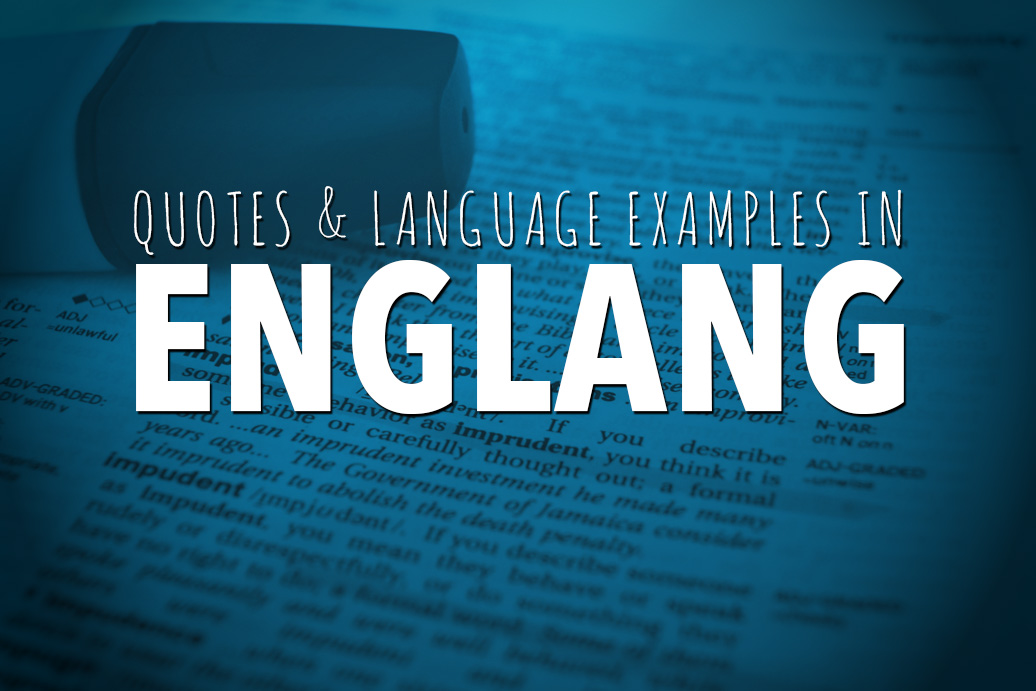
Hi everyone, my name is Poorva and I graduated from Mac.Rob in 2024, scoring a raw 46 in English Language 3/4.
Today I’ll be providing you with an exhaustive compilation of expert linguist quotes that you can pepper throughout your Section C Essay for your VCE English Language Exam and SACs.
To make this as accessible as possible, they are separated by Area of Study.
🧠 Unit 3 Area of Study 1: Informality
- “Profanity has a natural place in the Australian vocabulary” (Sarah Kimmorley)
- Profanity can be used as an “exclamatory interjection with expressive functions” (Keith Allan, Kate Burridge)
- “Words can manage to destroy” (Paulo Coelho, The Alchemist, 1988)
- “In periods of patriotism, it was felt that swearing and a strong, broad Australian accent, for example, are associated with toughness and strength and these can be highly valued qualities.” (Kate Burridge)
- Covert slang works to “erect barriers between them and the outside” (Kate Burridge)
- "The use of slang is a means of marking social or linguistic identity." (David Crystal)
- Australian vernacular acts as a “social adhesive which bonds and unites us” (Strutchberry, AFR)
- “All Australian accents have changed, but they change through the speech of young people.” (Felicity Cox)
- “Teenagers use language as a kind of identity badge that has the effect of excluding adults.” (Pam Peters)
- “Slang is not just a way for young’uns to separate themselves from elders, it’s also a way for them to show unity with their peers. And of course, it can do this for any age." (David Crystal)
🧠 Unit 3 Area of Study 2: Formality
- Jargon can be seen as a “shortcut vocabulary” (Erin McKean, TED Talk)
- Jargon serves as the “hallmark of profession” (Kingman Brewster, Yale)
- Jargon can be exploited as an “elitist language” (Richard Denniss)
- “A range of linguistic deodorisers, smokescreens and fig leaves” (Kate Burridge)
- “Language is constantly evolving and this is part of the evolutionary process.” (Bruce Moore, ANU)
- Politically correct language is a “clumsy attempt at social engineering” (Cory Bernardi)
- “Euphemisms are mild, vague, indirect ways of expressing something that is taboo.” (Kate Burridge)
- “Political language… is designed to make lies sound truthful and murder respectable.” (George Orwell, Politics and the English Language, 1946)
- “Since women can chair meetings, chairperson is not euphemistic—it’s just accurate.” (Kate Burridge)
- “Words can manage to destroy without leaving clues.” (Paulo Coelho)
- “Discriminatory language expresses cultural norms… so entrenched in language as to appear normal or true.” (Burridge & Mulder)
- Stereotypes “oversimplify and underestimate people’s lives.” (Kate Burridge)
- Standard Australian English is the “dialect with ‘social clout’.” (Kirsten Fox)
🧠 Unit 4 Area of Study 1: Language Variation in Australian Society
- “Linguistic change runs parallel with social change.” (Felicity Cox)
- “Ethnolects are a symbol of group identity… a vehicle for expressing multiple identities.” (Anna Duszak)
- “Language is perhaps the most widely encountered symbol of ethnic identity.” (Macmillan Textbook)
- “For many Aboriginal Australians, Aboriginal English is a link to tradition and community… a solidarity marker.” (Vinson, 2008)
- “A broad Australian accent and taboo language become desirable macho markers of gender identity.” (Burridge & Mulder)
- “Profanity has a natural place in the Australian vocabulary.” (Sarah Kimmorley)
- “Swearing and a strong, broad Australian accent… associated with toughness and strength.” (Kate Burridge)
- “Australian English functions as a powerful symbol of national identity.” (Australian Voices, Macquarie)
- “Australian English is known for its quirky, larrikin, idiosyncratic creativeness.” (Roland Sussex)
- “Covert slang works to erect barriers between them and the outside.” (Kate Burridge)
- “Language is constantly evolving and this is part of the evolutionary process.” (Bruce Moore)
- “All Australian accents have changed through the speech of young people.” (Felicity Cox)
- “Slang… shows unity with peers at any age.” (David Crystal)
- “Diminutives [are used] as a solidarity code… marking in-group belonging.” (Anna Wierzbicka)
- “Teenagers’ speech is peppered with Americanisms.” (Bruce Moore)
🧠 Unit 4 Area of Study 2: Individual and Group Identities
- You can use many quotes from Unit 4 AOS 1 as there is strong conceptual overlap.
- Stereotypes “oversimplify and underestimate people’s lives.” (Kate Burridge)
- “One of the most prominent ways we identify ourselves and other people is through accent.” (Kate Burridge)
- “Very few women use broad Australian accents… associated with Australian masculinity.” (Bill Hunter)
- “Linguistic variation is a tool… to signal who we are and who we are not and cannot be.” (Leslie Sterling)
- “Language is a marker of social identity… people speak like those they aspire to be.” (Felicity Cox)
- “Political correctness is a matter of calling groups by the names they prefer.” (Kate Burridge)
🎓 If you're preparing for your VCE English Language SAC or final exam and want to use these quotes effectively, consider working with an experienced VCE English Language tutor to practise essay writing, analysis, and timing strategies.
